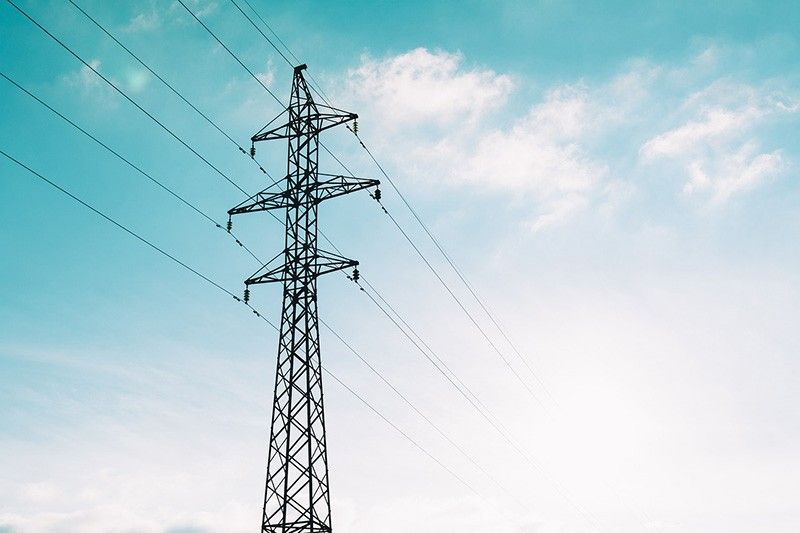Citizens are at the center of the energy issue

Conversations about energy have the tendency to sound technical and businesslike. For the Philippines, this touches on twin concerns of protection of the environment on the one hand, and the pursuit of economic growth on the other. Ultimately, energy is an issue that centers on people, and we as advocates of citizen empowerment try not to lose sight of this end.
Most of the world is in consensus with regard to reducing greenhouse gas emissions and mitigating the danger of climate change. A big part of this is the global push to reduce dependence on traditional and cost-effective dirty sources of fuel, like coal, and to shift to clean sources, specifically renewable energy like hydro, wind, and solar.
Renewable energy, however, is a relatively new technology, thus expensive, inconsistent, and uneven across societies. Achieving an efficient way to produce renewable energy remains a challenge especially for economies like the Philippines. The potential is always there, but realizing that potential to its fullest is another matter altogether. It will take many more years before the fruits of such a transition become apparent.
For example, the Marcos administration is looking at a share of 35% for RE in the country’s power mix by the year 2030. RE’s share is supposed to increase to 50% by 2040, showing that the transition is a slow and painstaking process, and that we can never really completely disengage ourselves from dirty fuel at least in the foreseeable future.
Still, we try. All these efforts to lower our carbon emissions and gradually increase our use of renewable energy hinge on the fact that extreme weather conditions affect vulnerable populations. Those who live in low-lying areas, especially in communities that are hardly able to prepare for the disaster or have little capability to recover fast from them, have much to lose. Lives and livelihoods are at stake.
In the meantime, the energy requirements of the economy remain and are more urgent than ever. Certainly, we cannot afford to slow down while making the transition from coal to renewable energy. We have just started performing well in recent years, picking up from the effects of the pandemic. We are poised to become a middle-income economy, but only if we keep up the pace we have been growing.
Equally important than economic growth is economic resilience, which means that we can withstand external shocks and be able to adapt to changes, good or bad, going on in the world stage. Economic inclusivity, on the other hand, will ensure that all Filipinos get to enjoy the fruits of prosperity, wherever in the archipelago they may live or to whatever socio-economic class they may belong.
Unstable energy supply will carry grave consequences for our people. On a macro scale, industries and companies will suffer. And then, communities and individuals will also see not only inconvenience but also disruptions in their daily routines, ranging from mundane tasks like their use of facilities to life-and-death situations like hospital services or rescue operations in the case of disaster.
How, then, do we continue to sustain the energy requirements of the country while also scaling down on our use of cheap but polluting fuel, as we move toward the ultimate goal of increasing the percentage of RE in the power mix?
Liquefied Natural Gas provides a viable option, being cleaner than coal. It is seen as a dependable bridge fuel in the country’s transition from coal to zero-carbon alternatives.
Still, this sound alternative also comes at a cost. The global supply tightness and the lack of long-term contracts make this a challenging endeavor. In its current state, LNG is not the cheapest option. Supply constraints and elevated global prices, exacerbated by geopolitical events, have driven LNG prices to record highs. Given the declining reserves of the Malampaya gas field, which has served as a critical energy source for a big part of the country in the past years, there is now an urgency to establish a reliable LNG infrastructure.
**
Earlier this week, our consumer advocacy group CitizenWatch together with international think tank The Stratbase Institute held a forum entitled “Advancing Energy Security: Fueling Sustainable Progress with Liquefied Natural Gas (LNG).” We brought together stakeholders from the government, private sector, academe, and civil society to explore ways on boosting LNG adoption and accelerate the development of the industry in the Philippines.
Department of Energy (DOE) Secretary Raphael P.M. Lotilla stated that the DOE is formulating a Natural Gas Development Plan to provide investors guidance, the legal requirements, and incentives in establishing LNG facilities and other infrastructure requirements.
“We call on the support of our stakeholders and partners in the private sector to assist us in creating a resilient, self-reliant, and sustainable energy future for the Philippines,” he said.
DOE Undersecretary Sharon Garin also noted the benefits of LNG in diversifying and securing the country's energy needs.
“LNG provides the flexibility to support various great demands, from base load to peaking power supply, as well as bridge the supply gap resulting from the moratorium on new coal power plants and retirement of existing coal capacities,” she elaborated.
But despite such initiatives from the Executive Department, there is a clear need for effective cost-saving mechanisms to mitigate the price volatility of LNG which will, again, be felt and carried by the ordinary consumer. Thus, there is an advocacy for a rationalized tax regime on imported LNG and all other fuels for power generation. This tax regime will help reduce costs and make this transitional phase more manageable for the economy.
To address these challenges effectively, there is a need for the immediate passage of the Philippine Downstream Natural Gas Industry Development Act and the Midstream Natural Gas Industry Development Act. These pending bills when enacted into law will provide the framework to attract the right investors, ensure transparent pricing mechanisms, and establish cost-saving measures that protect consumers from market volatility.
Indeed, there is a need for collaboration among government, industry, academe, and civil society, to achieve a well-balanced, and more secure and affordable energy future. According to Senator Sherwin Gatchalian, Vice Chairman of the Senate Committee on Energy, “The collaborative efforts of the public and private sectors are crucial in embracing cleaner energy sources like liquefied natural gas (LNG), which not only promise a cleaner future but also ensure a robust and secure energy framework for the Philippines.”
We are counting on every sector of society to be on board in this. Our goal is clear: to provide every Filipino with reliable, affordable energy that supports both economic growth and environmental sustainability.
Kit Belmonte is a co-convenor at CitizenWatch Philippines.
- Latest
























